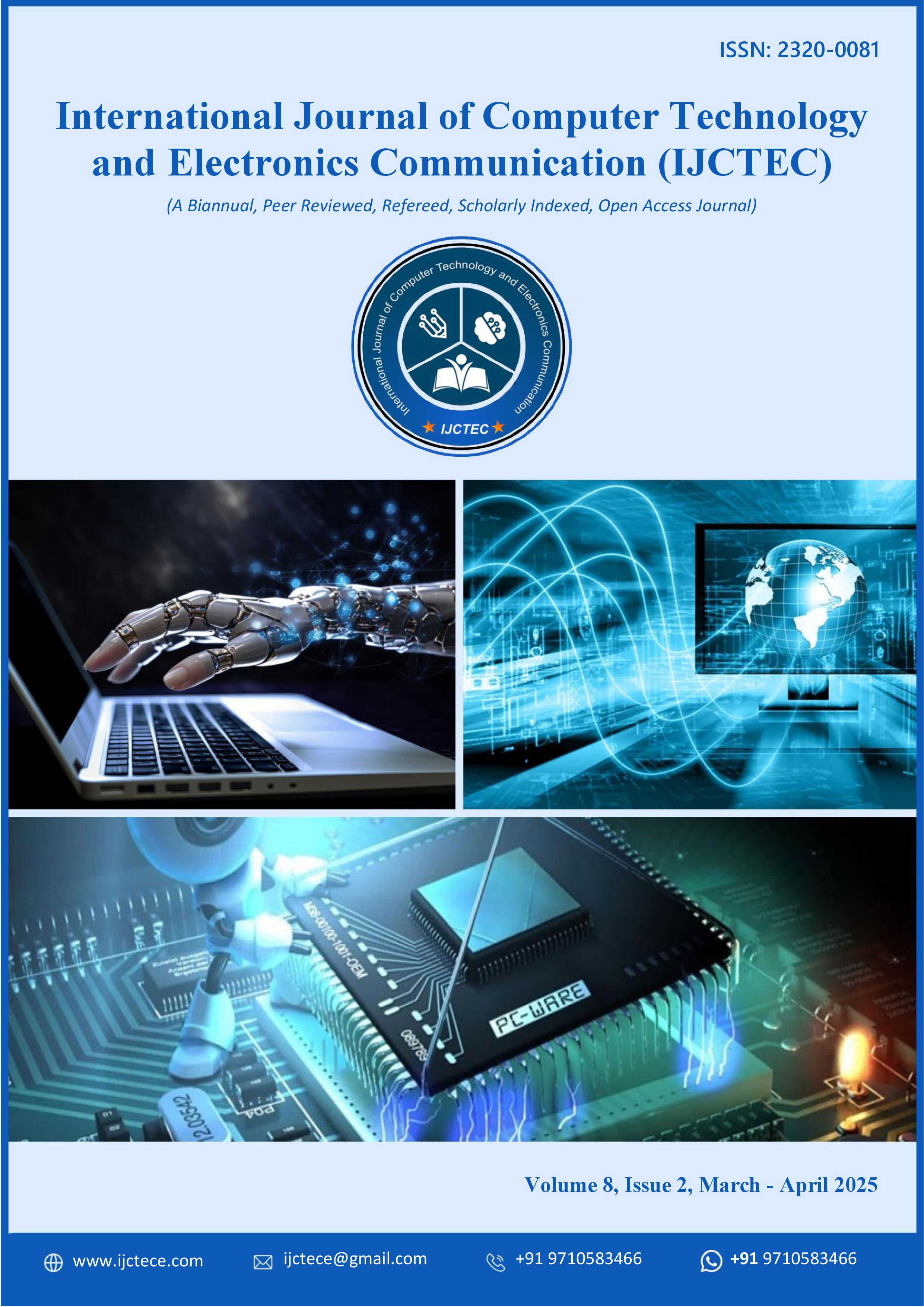A Study of Federated Learning: Privacy-Preserving Approaches in Distributed Machine Learning
DOI:
https://doi.org/10.15680/IJCTECE.2025.0802001Keywords:
Federated Learning, Privacy-Preserving AI, Distributed Systems, Federated Averaging, Secure Aggregation, Differential Privacy, Edge Computing, Data Sovereignty, Decentralized Learning, FL in HealthcareAbstract
Federated Learning (FL) is an emerging machine learning paradigm designed to enable model training across decentralized data sources without requiring data to be transferred or centralized. This approach is especially valuable in environments where data privacy, regulatory compliance, and communication efficiency are paramount, such as healthcare, finance, and edge computing. Traditional machine learning methods typically require data to be aggregated in a central server, raising concerns about data privacy and security. Federated Learning addresses these concerns by keeping data on local devices and sharing only model updates, thereby preserving data sovereignty.This paper provides a comprehensive analysis of Federated Learning in distributed systems, focusing on its architecture, advantages, and the technical challenges it presents. We explore the different types of FL—including horizontal, vertical, and federated transfer learning—and explain how each is suited to specific application contexts. We also investigate critical issues such as communication overhead, model convergence, data heterogeneity, and security threats including poisoning and inference attacks.The methodology section discusses state-of-the-art FL frameworks, including Google's Federated Averaging (FedAvg), Secure Aggregation protocols, and emerging advancements like differential privacy and homomorphic encryption. Real-world implementations in mobile networks, autonomous vehicles, and medical diagnosis systems are examined to demonstrate FL’s growing applicability.The paper concludes by emphasizing the transformative potential of Federated Learning in enabling privacy-preserving AI. It also highlights the need for standardized protocols, legal frameworks, and interdisciplinary collaboration to fully harness FL’s benefits while mitigating its risks. As AI continues to permeate sensitive domains, FL offers a promising path forward for ethical and secure machine learning.
References
1. McMahan, H. B., Moore, E., Ramage, D., Hampson, S., & y Arcas, B. A. (Communication-Efficient Learning of Deep Networks from Decentralized Data. Proceedings of AISTATS.
2. Yang, Q., Liu, Y., Chen, T., & Tong, Y. (Federated Machine Learning: Concept and Applications. ACM Transactions on Intelligent Systems and Technology (TIST).
3. Bonawitz, K. et al. Practical Secure Aggregation for Privacy-Preserving Machine Learning. ACM CCS.
4. Nasr, M., Shokri, R., & Houmansadr, A). Comprehensive Privacy Analysis of Deep Learning: Passive and Active White-box Inference Attacks. IEEE S&P.
5. Bhagoji, A. N., Chakraborty, S., Mittal, P., & Calo, S. Analyzing Federated Learning through an Adversarial Lens.
ICML.
6. DrR. Udayakumar, Muhammad Abul Kalam (2023). Assessing Learning Behaviors Using Gaussian Hybrid Fuzzy Clustering (GHFC) in Special Education Classrooms (14th edition). Journal of Wireless Mobile Networks, Ubiquitous Computing, and Dependable Applications (Jowua) 14 (1):118-125.
7. Naga Ramesh, Palakurti Computational Biology and Chemistry with AI and ML. International Journal of Research in Medical Sciences and Technology 1 (17):29-39.
8. Zhu, L., Liu, Z., & Han, SDeep Leakage from Gradients. NeurIPS.
9. Rajendran, Sugumar (2023). Privacy preserving data mining using hiding maximum utility item first algorithm by means of grey wolf optimisation algorithm. Int. J. Business Intell. Data Mining 10 (2):1-20.
10. Google AI Blog. (2017). Federated Learning: Collaborative Machine Learning without Centralized Training Data. Retrieved from https://ai.googleblog.com/


